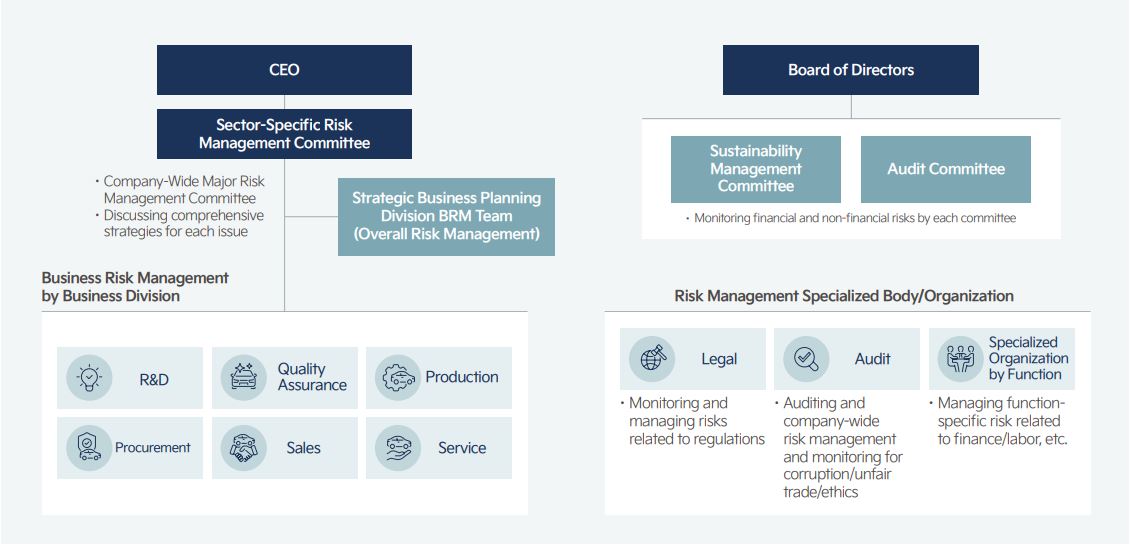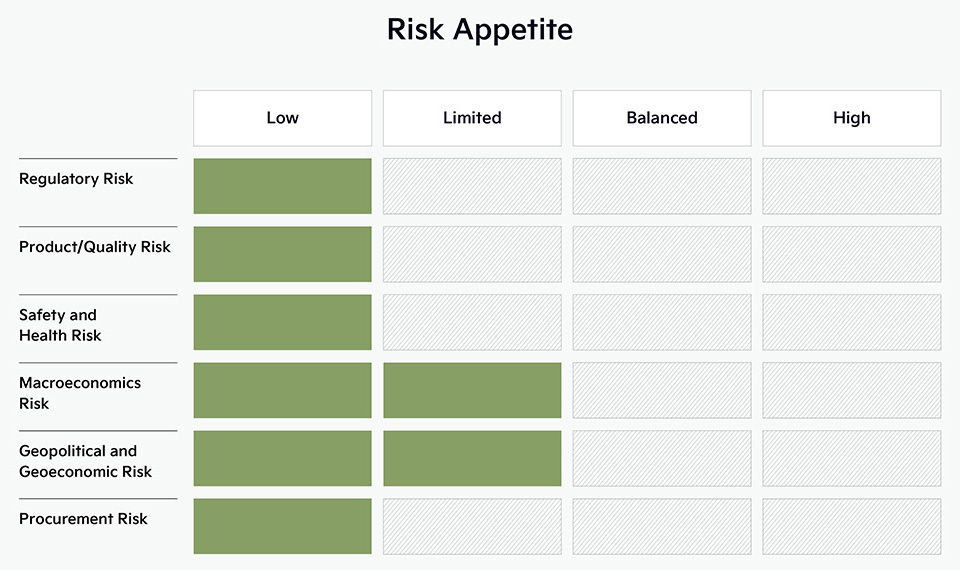
How it works
Kia's commitment to a sustainable future for the people, the environment, and the future
Kia ESG Policy
We introduce our ESG policy book which contains Kia's policies on various ESG issues across the value chain. Kia establishes company-wide policies for ESG issues such as human rights, safety, and the environment to provide business standards and guidelines for us and our partners. We will continuously revise our policies in response to the changing environment.
ESG Policy PDF Download
- Environmental Management Policy (KOR)
- Biodiversity Protection Policy (KOR)
- No Deforestation Policy (KOR)
- Carbon Neutral Guide for Suppliers (KOR)
- Human Rights Charter (KOR)
- Diversity & Inclusion Policy (KOR)
- Non-Discrimination & Anti-Harassment Policy (KOR)
- Occupational Safety & Health Policy (KOR)
- Ethical Advertising and Marketing Principles (KOR)
- Privacy Policy (KOR)
- Responsible Raw Materials Sourcing Policy (KOR)
- Responsible Minerals Sourcing Policy (KOR)
- Supplier Code of Conduct (KOR)
- Risk Management Policy (KOR)
- Corporate Governance Charter (KOR)
- Chief Executive Officer Succession Policy (KOR)
- Board Diversity Policy (KOR)
- Ethics Charter & Code of Conduct (KOR)
- Tax Policy (KOR)
- Fair Competition Policy (KOR)
- Community Engagement Policy (KOR)
- Supply Chain Sustainability Management Policy (KOR)
- Environmental Management Policy (ENG)
- Biodiversity Protection Policy (ENG)
- No Deforestation Policy (ENG)
- Carbon Neutral Guide for Suppliers (ENG)
- Human Rights Charter (ENG)
- Diversity & Inclusion Policy (ENG)
- Non-Discrimination & Anti-Harassment Policy (ENG)
- Occupational Safety & Health Policy (ENG)
- Ethical Advertising and Marketing Principles (ENG)
- Privacy Policy (ENG)
- Responsible Raw Materials Sourcing Policy (ENG)
- Responsible Minerals Sourcing Policy (ENG)
- Supplier Code of Conduct (ENG)
- Risk Management Policy (ENG)
- Corporate Governance Charter (ENG)
- Chief Executive Officer Succession Policy (ENG)
- Board Diversity Policy (ENG)
- Ethics Charter & Code of Conduct (ENG)
- Tax Policy (ENG)
- Fair Competition Policy (ENG)
- Community Engagement Policy (ENG)
- Supply Chain Sustainability Management Policy (ENG)
ESG Governance
Kia is reinforcing ESG integration in the decision making process, overseen by the Sustainability Management Committee, which is an integral part of the Board, while closely monitoring ESG issues. Additionally, a dedicated sustainability management organization has been elevated to a division from a team, aiming to implement improvement tasks across all business sectors based on the newly established medium- to long-term ESG strategy. The progress is monitored through discussions within the council.
We are integrating ESG factors into the performance evaluation of top management, and each division and business unit to drive business operations and decision making from a sustainable management perspective. Specifically, in 2024, we have expanded its application to the overseas sector for the first time, encouraging the promotion of ESG-oriented business initiatives throughout the entire organization.
ESG Governance
Sustainability Management
Committee of BOD
CEO
ESG Council
Strategic Business Planning Division
Sustainability Management Division
Achievements for Enhanced ESG-oriented Decision-Making
Strengthening ESG KPIs Across Domestic and International Sectors
Company-wide ESG integration through incorporation of performance evaluation systems for ESG, including carbon emissions reduction, progress on RE100, and compliance with fuel efficiency regulationsInternalizing Risk Prevention and Response Systems
Mandatory KPI evaluations across all global regions-encompassing human rights risk assessments, enhanced safety policies, and security system implementation levelsMonitoring Implementation Through Domestic and International ESG Councils
Sharing and reviewing key ESG issues at major sites, including relevant domestic sectors and European operations.Integrated Risk Management
Risk Management System
Kia identifies and mitigates financial and non-financial risks through integrated management. Additionally, to ensure effective risk management, responsibilities are allocated across three levels. Primarily, dedicated managers within each business unit continuously monitor and manage potential risks during operational activities. Furthermore, a dedicated team within the Strategic Business Planning Division oversees risk response status by implementing company-wide risk sensing and response processes. Kia reviews material ESG risks identified through the company-wide risk management process. Centered around the Sustainability Management Committee, Kia has established an ESG risk management system to review key sustainability-related issues and report the implementation status and plans of ESG tasks. The committee also deliberates and decides on ethics management and social contribution policies. ESG elements are reflected in KPIs across departments to manage non-financial risks comprehensively.

Reponse to key risks
Kia manages key risks that could impact our sustainability, guided by our risk appetite. For issues where our risk appetite is low—meaning we have a low tolerance for the risk involved—these are consistently presented and discussed at executive management meetings, including with top leadership. Through relevant consultative bodies, we respond swiftly to external changes. Key risks identified and managed by our company include legal/regulatory risks, product/quality risks, health and safety risks, and macroeconomic risks.
